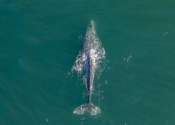Earth's first-known giant was as big as a sperm whale
The two-meter skull of a newly discovered species of giant ichthyosaur, the earliest known, is shedding new light on the marine reptiles' rapid growth into behemoths of the Dinosaurian oceans, and helping us better understand ...









